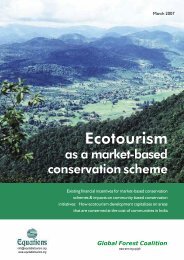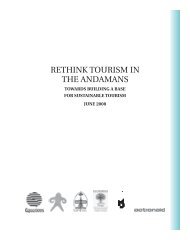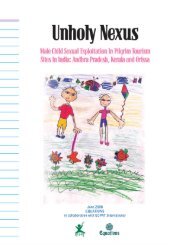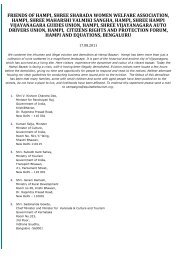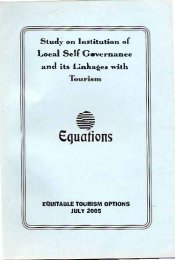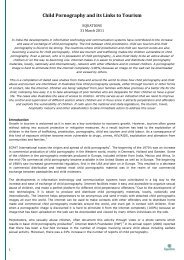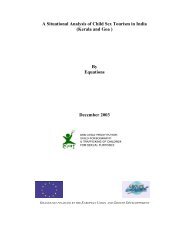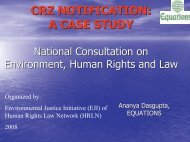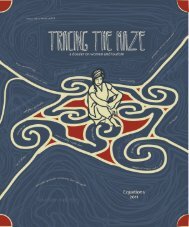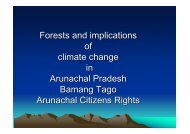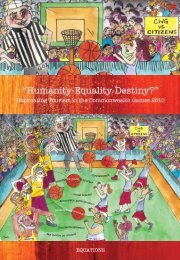Nilgiris Biosphere Reserve - Equitable Tourism Options
Nilgiris Biosphere Reserve - Equitable Tourism Options
Nilgiris Biosphere Reserve - Equitable Tourism Options
You also want an ePaper? Increase the reach of your titles
YUMPU automatically turns print PDFs into web optimized ePapers that Google loves.
esources for the population in host communities while maintaining the<br />
cultural and environmental integrity of the host communities and enhancing<br />
the protection of ecologically sensitive areas and natural heritages.<br />
I. The UN's International Year of Ecotourism 2002 (lYE) - Declaration<br />
of the World Ecotourism Summit, Quebec<br />
'Ecotourism' activities have been expanding rapidly worldwide over the past<br />
two decades and further growth is expected in the future. There are<br />
increasing efforts to use ecotourism potential to support nature conservation<br />
and benefit local people, especially in developing countries. This rapid<br />
growth, however, has also given rise to concerns about negative<br />
(environmental, socio-cultural) impacts.<br />
RecogniSing its growing global importance, the United Nations designated<br />
the year 2002 as the International Year of Ecotourism (lYE), and its<br />
Commission on Sustainable Development requested international<br />
agencies, governments and the private sector to undertake supportive<br />
activities. Along with the United Nations Environment Programme (UNEP)<br />
and the World <strong>Tourism</strong> Organization (WTO), who were officially designated<br />
as the coordinating organisations for lYE, and The International Ecotourism<br />
Society (TIES) undertook series of activities throughout the lYE.<br />
Objectives of lYE<br />
UNEP and WTO aim at involving all the actors in the field of ecotourism<br />
during the International Year, with the following objectives in mind:<br />
1. To open a wide review on the potential contribution of ecotourism to<br />
sustainable development and to conservation of biodiversity;<br />
2. To exchange information on good practice and lessons learned in the<br />
sustainable planning, development, management and marketing of<br />
ecotourism;<br />
3. To advance in the knowledge of the social, economic and environmental<br />
impacts of ecotourism;<br />
4. To assess the effectiveness of regulatory mechanisms and voluntary<br />
schemes for monitoring and controlling the impacts of ecotourism;<br />
5. To review experiences and lessons learned on the partiCipation of local<br />
communities and Indigenous People in ecotourism projects and<br />
businesses.<br />
57 Nilagiris : Fading Glory



